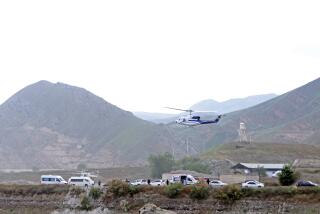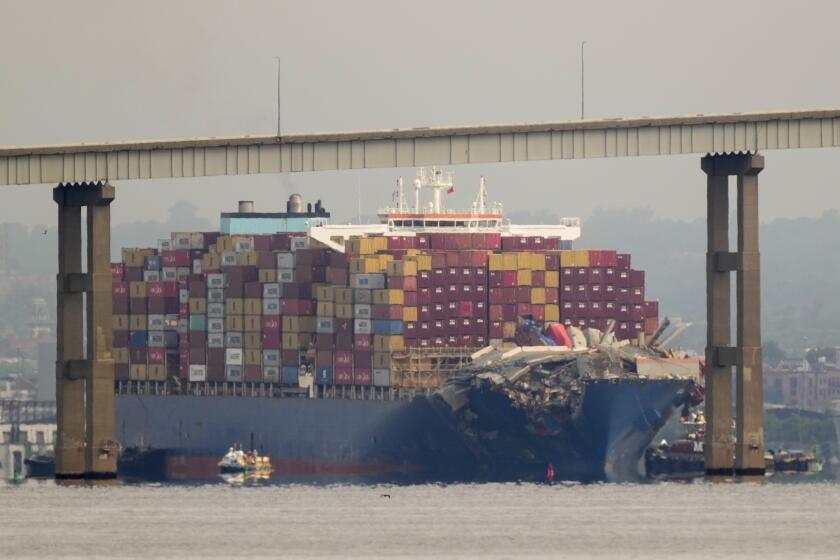Bosnia Peace Builders Face a Heavy Burden : Restoring polity a challenge even without Serb provocations
Arriving in the nick of time, like the cavalry, the first American, French and British units of the NATO peacekeeping force reached Bosnia late last month before an edgy cease-fire had a chance to fray. Their presence has put a psychological hold upon the men of arms. Not so, alas, with the civilian side of the international campaign to restore peace, and possibly civility, to the fractured country. The diplomats have just now landed.
Here’s what they’re looking at: helping to coordinate negotiations among the Muslim, Serb and Croatian communities of Bosnia to create within its current boundaries two distinct political entities under a federal government; holding elections of leaders and legislatures for the federation; restoring a shattered economy; establishing police forces and court systems, and building trust. All that within nine months. There is a lot to do in a short time.
Euro-diplomat Carl Bildt, a former Swedish prime minister, was named by a London conference of governments and agencies to run the international civilian effort in Bosnia. His assignment was endorsed by the U.N. Security Council, but he does not report to U.N. officialdom. These are the tortured arrangements under which the peacekeeping, state-building campaign in Bosnia is being built. Meeting the targets set out at the Dayton, Ohio, peace conference last fall will be a daunting challenge, and Bildt arrived in Sarajevo just Wednesday night to take it up.
The NATO troops beat him to the punch by two weeks. U.S. Defense Secretary William J. Perry has already walked across the symbolic Sava River bridge in the north, a high-level political baptism of the military effort. The White House announced Thursday that President Clinton plans a similar trip, and probably across the same bridge.
Meanwhile, down in Sarajevo, the capital and cockpit of the bloody four-year war, the outside solution to the Bosnian war was being challenged. In a Serbian suburb, 16 Muslim men were seized when they tested the supposed right to free travel within the capital area. The Bosnian president, a Muslim, demanded their release. The mayor of the Serbian suburb labeled them “spies and terrorists” and suggested they’d be prosecuted. Questioned about the incident (the men were released Thursday), the visiting Perry called it “fundamentally a law-enforcement problem.”
Problems like this seem destined to be political hot potatoes until Bildt and his team can help the Bosnians put together some sort of civilian administration as a bridge to new nationhood. One of his deputies, Robert Frowick, an American working for the Organization on Security and Cooperation in Europe, will help organize the elections. But these international efforts have no solid standing beyond the political weight of Washington and the European powers, including Russia, to force a solution to this Balkan agony.
A positive factor is the clear exhaustion among all the warring factions after four years of unrelenting fighting. But while the will to fight has ebbed, the rough, sectarian politics of Bosnia and its Balkan neighbors have not cooled, not for centuries.
The incident in the Sarajevo suburb is an example of what faces outsiders as they try to bring the rule of law to a now lawless country. Each faction wants the law enforced to its benefit. When decisions go the other way, a sense of betrayal rises. One of the freed Muslim men put the blame for his captivity on IFOR, the NATO peacekeeping force. “I thought the road was safe,” he complained. “I thought the war was over. I thought IFOR was providing guarantees.”
At this point only a foolish traveler would count on guarantees, given or presumed. Trust, law and confidence will emerge only step by step, and the advisors and their representatives are already several steps behind.
More to Read
Start your day right
Sign up for Essential California for news, features and recommendations from the L.A. Times and beyond in your inbox six days a week.
You may occasionally receive promotional content from the Los Angeles Times.






